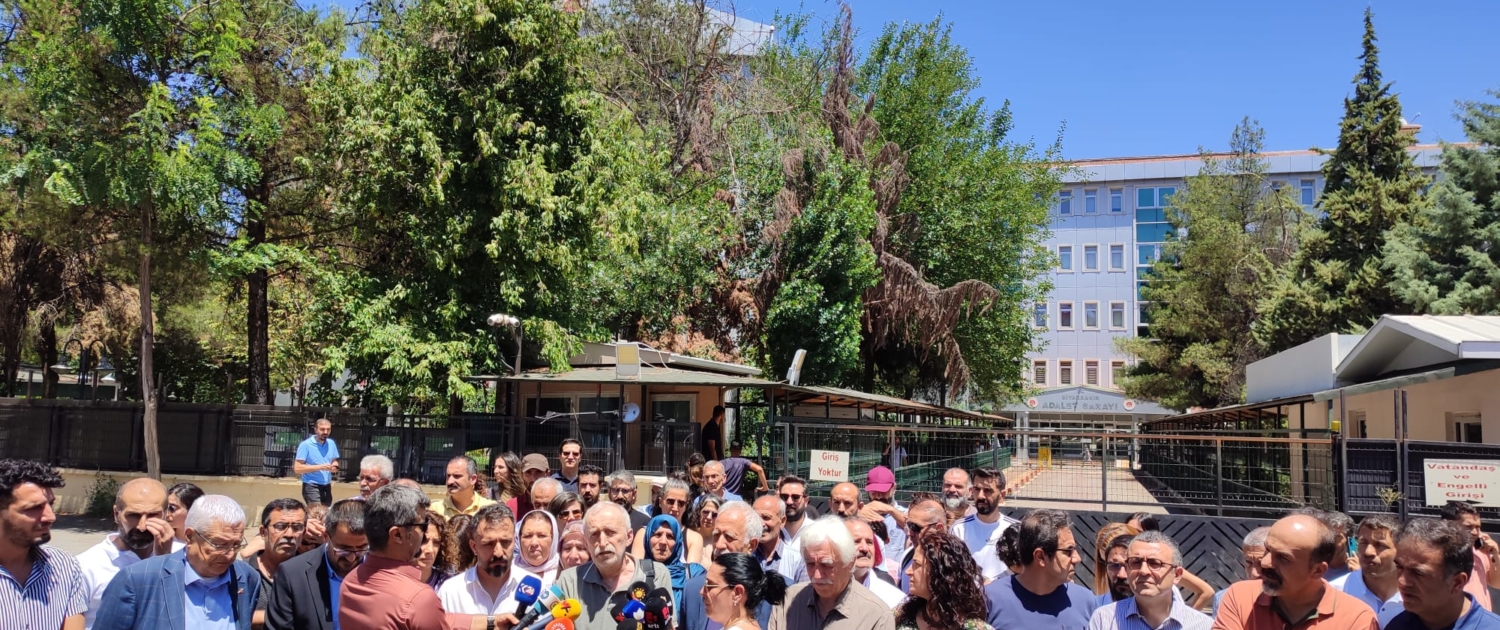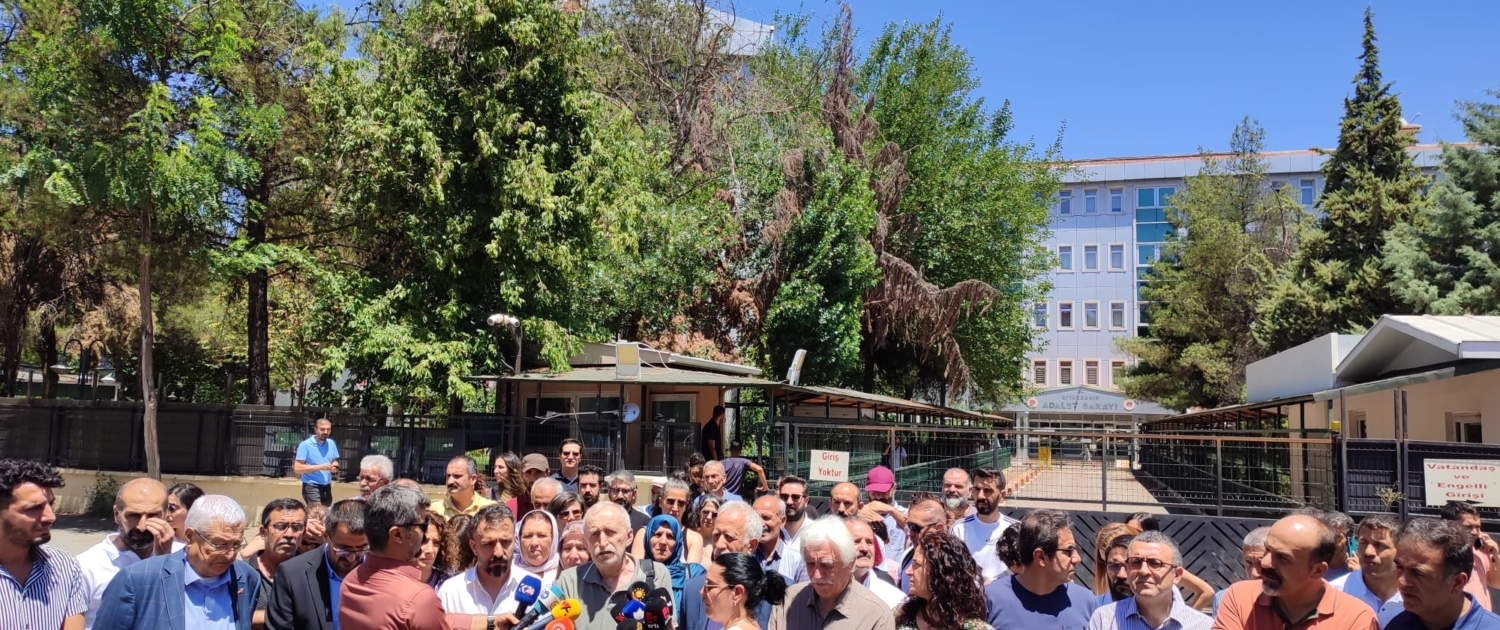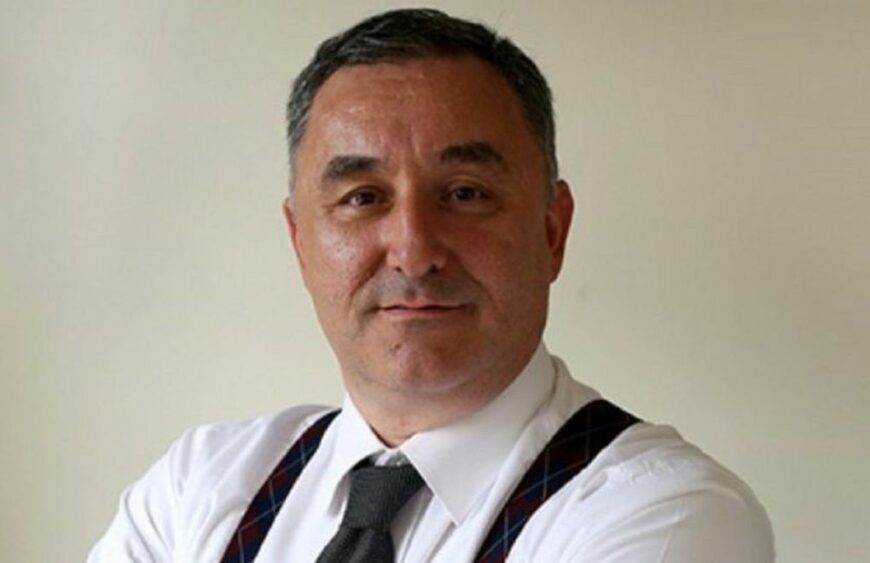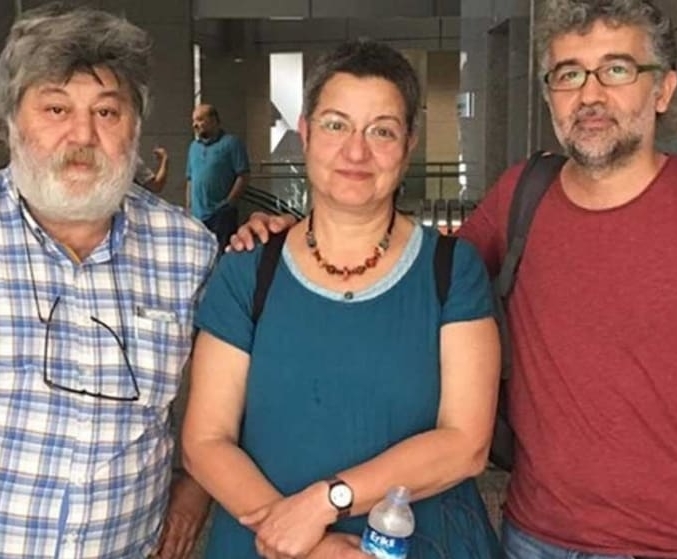Tag Archive for: Tyrkia
Guidelines on Indictment Writing for Prosecutors in Turkey
Guidelines on Indictment Writing for Prosecutors in Turkey
PEN Norway launched Guidelines on Indictment Writing for Prosecutors in Turkey in March 2024.
Following PEN Norway’s Turkey Indictment Project that was set up in 2020, more than 25 indictments in cases of freedom of expression was analysed by legal experts from Turkey and Europe. The indictments were compared to the requirements set out in Turkey’s Criminal Procedure Code, the European Convention on Human Rights and the UN Guidelines for Prosecutors. The findings reveal that the indictments were not in line with the legal instruments, which poses serious concerns about the impartiality of the legal process, and largely affects the outcome of the case.
PEN Norway’s Guidelines on Indictment Writing for Prosecutors is a practical tool for prosecutors to ensure that the investigation process is fair, well-reasoned, consistent and aligned with the protection of fundamental rights and freedoms, which is among the duties of prosecutors.
The Guidelines are available in English and Turkish.
Introduction
Following the attempted-coup in Turkey in 2016, the government implemented a state of emergency that it upheld for two years. This is despite the Venice Commission’s opinion in its October 2017 report that the threat to national security lasted only 48 hours. During the two-year period 2016-2018 the government issued tens of ‘Emergency Decrees’ by which means they shuttered 178 media organisations1, and all but four opposition newspapers, jailing hundreds of journalists. In 2018, the number of journalists in prison reached a record 110 according to the report published by European Commission. By 3 May 2019, World Press Freedom Day, some sources reported that the number of imprisoned journalists in Turkey had reached 191. With this number, Turkey became the country with the highest number of imprisoned journalists in the world. Sadly, the situation for Turkey’s journalists in terms of freedom of expression and the right to a fair trial has not improved since then, with Turkey being placed top of the list of countries from which individuals applied for their cases concerning potential violations to their right to freedom of expression to be heard at the European Court of Human Rights in 2021.
Events in Turkey during the latter half of 2016 prompted grave concerns regarding the rule of law, the right to fair trial and freedoms closely tied to these rights – the freedoms of opinion, expression, and press freedom in general. PEN Norway monitored over 100 hearings against journalists, civil society actors and media workers between 2016 and 2023. These included the high- profile media trials such as the Cumhuriyet newspaper trial, the Gezi Park trial in which 16 defendants were held responsible for 2013’s impromptu uprising against government conservatism and the fight to preserve a green space at Taksim square, Istanbul.
As well as this, PEN Norway monitored individual journalist trials month by month, observations which led to the conclusion that the indictments underlying these trials warranted a scientific and comprehensive review. PEN Norway therefore set up the ‘Turkey Indictment Project’ in January 2020. The detailed legal analyses that was conducted of indictments in trials concerning violations of the defendants’ right to freedom of expression found the allegations in many of these trials to be unclear, with no established link between the presented evidence and alleged actions. What is more, when considering all the arguments put forth in the hearings, even those trial observers without legal expertise felt they could clearly see that no criminal offense had been committed.
PEN Norway’s Turkey Indictment Project examines indictments that targets a broad range of individuals, including journalists, civil society activists, filmmakers, academics, and lawyers, raising questions about potential violations of the right to freedom of expression. The project and first annual report presenting 12 indictment studies and six articles on various mechanisms of the law in Turkey was launched at an online event with international participants on 30 September 2020 and is still ongoing today.
Based on a scientific methodology of legal assessment, the project aimed to address whether the indictments – a cornerstone of the criminal process – drafted by prosecutors in Turkey, aligned legally with the existing Code of Criminal Procedure (CCP) in force in Turkey and with other pertinent international legislation, particularly the European Convention on Human Rights (ECHR), of which Turkey has been a signatory since 1953 and whose regulations and rulings supercede all of the same in Turkey.
Indictments in 12 individual cases were studied in 2020, ten in 2021, three in 2022 and four in 2023. In total, 29 indictments have so far been assessed by lawyers, judges and legal academics from Norway, Austria, United Kingdom, Netherlands, Italy, Turkey.5 Those assessments culminated in legal analysis reports prepared for each indictment. Another dedicated study on the Gezi Park trial wasconducted, beginning with the indictment of the file and spanning the appeals process, which was subsequently published as a book.Meanwhile, as a core component of the Turkey Indictment Project, we continued our practice of participating in hearings pertaining to freedom of expression as independent observers. As part of our ongoing work on freedom of expression, the right to fair trial, and judicial independence in Turkey, numerous articles have been authored. In summary, the forthcoming guidelines presented here can be seen as the concluding chapter of a scientific and legal study into violations of the rights of journalists and other citizens of Turkey by an overzealous, anti- dissident judicial mechanism supported and potentially directed by the government at the highest levels.
The Turkey Indictment Project has consistently uncovered a regrettable pattern: Situated at the core of proceedings directly tied to freedom of expression in Turkey, are indictments riddled with numerous errors and omissions. The study paints a deeply concerning picture, indicating violations of many fundamental rights and freedoms such as the presumption of innocence, the right to defence, and the right to fair trial, occurring even at the very early stage of indictment-drafting. The analysis also discovered fundamental contradictions between the indictments and principles outlined in internationally recognized foundational texts published to guide and regulate prosecutors.
Given these reasons, PEN Norway deemed it beneficial to develop guidelines based on the role of prosecutors in the criminal justice system in Turkey and the universally acknowledged ethical rules of the prosecutor’s profession. PEN Norway’s Guidelines on Indictment Writing for Prosecutors in Turkey will serve to improve the indictment-drafting process in Turkey, particularly in connection with cases concerning the right to freedom of expression and freedom of the press. As highlighted in these guidelines, enhancing the quality of indictment-drafting goes beyond just linguistic considerations. Rather, we hope that such guidelines may contribute to diminishing the volume of indictments, especially concerning freedom of expression and freedom of the press.
Freedom of expression is the main framework around which this study is organised. The aim of the PEN Norway’s guidelines is to broadly outline the principles that should guide the initiation and conduct of investigations where the purported offense is comprised solely of “statements”. The primary objective is to provide general guidelines for prosecutors in Turkey in order to ensure that the investigation process is fair, well-reasoned, consistent and aligned with the protection of fundamental rights and freedoms, which is among the duties of prosecutors.
Giriş
Türkiye’de 2016 yılından gerçekleşen darbe girişiminin akabinde hükümet, Venedik Komisyonu’nun Ekim 2017 tarihli ve ulusal güvenliğe yönelik tehdidin 48 saatin sonunda ortadan kalktığını belirttiği görüşünün aksine, iki sene boyunca sürecek bir olağanüstü hal ilan etti. Bu iki sene zarfında onlarca Olağanüstü Hal Kanun Hükmünde Kararnamesi yayınlandı ve bu yolla 178 basın organı1 ve dördü hariç tüm muhalif gazeteler kapatıldı ve bu aynı süre içerisinde yüzlerce gazeteci tutuklandı. Avrupa Komisyonu tarafından yayımlanan rapora göre 2018 yılında tutuklu gazetecilerin sayısı 110 ile rekor bir seviyeye ulaştı. Dünya Basın Özgürlüğü Günü olan 3 Mayıs 2019’a gelindiğinde bazı kaynaklar Türkiye’deki tutuklu gazeteci sayısının 191’e ulaştığını bildirdi. Bu sayı Türkiye’yi tüm dünyada en çok gazetecinin tutuklu olduğu ülke sıralamasında birinciliğe taşıdı. Ne yazık ki, ifade özgürlüğü ve adil yargılanma hakkı bağlamında Türkiye’deki durum o tarihten bu yana olumlu bir gelişme göstermedi. Aksine 2021 yılında Türkiye, Avrupa İnsan Hakları Mahkemesi’ne ifade özgürlüğü hakkı ihlali nedeniyle aleyhine en fazla bireysel başvuru yapılan ülke oldu.
Türkiye’de 2016 yılının ikinci yarısında yaşanan gelişmeler, hukukun üstünlüğü, adil yargılanma hakkı ve bu haklarla doğrudan ilişkili olarak düşünce, ifade ve basın özgürlüğü ile ilgili ciddi kaygılar yaratmıştır. PEN Norveç 2016 ila 2023 yılları arasında gazeteciler, sivil toplum aktörleri ve medya çalışanları aleyhine gerçekleşen 100’ün üzerinde duruşmayı izledi. Bunların arasında Cumhuriyet Gazetesi davası, hükümetin muhafazakar politikalarına karşı ve Taksim Meydanı’ndaki yeşil alanı koruma mücadelesi üzerinden 2013’de hiç beklenmedik şekilde gelişen Gezi direnişinden 16 sanığı sorumlu tutan Gezi Parkı davası gibi kamuoyunda ses getiren davalar da bulunmaktadır.
Bunun yanı sıra, PEN Norveç tekil gazeteci davalarını ay ay izledi ve yapılan bu bütünsel gözlemler, bu davaların temelini oluşturan iddianamelerin bilimsel ve kapsamlı bir incelemeyi gerektirdiği sonucunu doğurdu. PEN Norveç bu nedenle Ocak 2020’de ‘Türkiye İddianame Projesi’ni başlattı. Sanıkların ifade özgürlüğü hakkı ile ilişkili yargılamalara dayanak olan iddianamelerin ayrıntılı hukuki analizleri, bu iddianamelerin çoğunda iddiaların belirsiz olduğunu ve sunulan kanıtlar ile şüphelilere isnat edilen fiiller arasında hiçbir bağlantı kurulmadığını ortaya koydu. Dahası, duruşmalarda ileri sürülen tüm argümanlar göz önünde bulundurulduğunda, hukuki uzmanlığı olmayan kişiler dahi herhangi bir suçun işlenmediğini açıkça görebildiklerini ifade etmişlerdir.
Bu gözlemler ışığında 2020 yılında PEN Norveç tarafından PEN Norveç Türkiye İddianame Projesi tasarlanmıştır. PEN Norveç Türkiye İddianame Projesi; gazeteciler, sivil toplum aktivistleri, yönetmenler, akademisyenler, avukatlar gibi geniş bir kesimin karşı karşıya kaldığı ve ifade özgürlüğü hakkının ihlal edilip edilmediği sorusuna yol açan iddianamelere odaklanmaktadır. Projenin kapsamı ve incelenmiş 12 iddianameye ilişkin raporları ve Türkiye’deki yargı mekanizmasının nasıl işlediğine ilişkin 6 ayrı makaleyi içeren projenin ilk yıllık raporu uluslararası katılımcılarla 30 Eylül 2020’de gerçekleştirilen çevrimiçi bir etkinlikle tanıtılmış olup, bu proje bugün hala devam etmektedir.
Bilimsel bir hukuki değerlendirme metodolojisine dayanan proje, Türkiye’de savcılarca kaleme alınan ve bir cezai sürecin en temel yapı taşı olan iddianamelerin, Türkiye’de yürürlükte olan Ceza Muhakemesi Kanunu (CMK) ve başta Türkiye’nin 1953’ten bu yana taraf olduğu ve Türkiye’deki tüm düzenleme ve kararların üstünde yer alan Avrupa İnsan Hakları Sözleşmesi (AİHS) olmak üzere ilgili diğer uluslararası mevzuatla hukuki açıdan uyumlu olup olmadığını ele almayı amaçlamıştır. 2020 yılında on iki, 2021 yılında on, 2022 yılında üç ve 2023 yılında dört olmak üzere, bu zamana kadar 29 iddianame Norveç, Avusturya, Birleşik Krallık, Hollanda, İtalya, Türkiye’den avukat, yargıç ve hukukçu akademisyenler tarafından incelenmiştir.
İGezi yargılaması konusunda ise iddianameden başlayarak istinaf sürecini de kapsayan bir genişlikte ayrıca bir çalışma yapılarak, bu çalışma kitaplaştırılmıştır. Bu süre zarfında Türkiye İddianame Projesi’nin bir ayağı olarak ifade özgürlüğü ile ilişkili duruşmalara bağımsız gözlemci sıfatıyla katılmaya devam edilmiştir. Yanı sıra Türkiye’de ifade özgürlüğü ile birlikte adil yargılanma hakkı ve yargı bağımsızlığını ilgilendiren konulardaki çalışmalar kapsamında çok sayıda makale de kaleme alınmıştır. Özetle, elinizde yeralan bu kılavuz, hükümetin üst düzeyde desteklediği ve belki de yönlendirdiği gayretkeş, her türlü muhalefete karşı konumlanmış bir yargı mekanizması tarafından Türkiye’de gazeteciler ve diğer vatandaşların karşı karşıya oldukları hak ihlallerinin tespiti ve giderilmesine yönelik bilimsel ve hukuki bir çalışmanın sonuç bölümü olarak düşünülebilir.
Türkiye İddianame Projesi son derece üzücü bir örüntüyü ortaya çıkarmıştır: Türkiye’de ifade özgürlüğü ile doğrudan bağlantılı yargılamaların merkezinde, çok sayıda hata ve eksiklikle dolu iddianameler yer almaktadır. Çalışma, masumiyet karinesi, savunma hakkı ve adil yargılanma hakkı gibi birçok temel hak ve özgürlüğün henüz iddianame yazım aşamasında ihlal edildiği yönünde çok kaygı verici bir tabloya işaret etmektedir. Çalışma ayrıca, savcılara rehberlik etmek ve mesleğin ilkelerini belirlemek amacıyla yayımlanan uluslararası kabul görmüş temel metinlerde belirtilen ilkeler ile iddianameler arasında temel çelişkiler olduğunu da tespit etmektedir.
Bu nedenlerle PEN Norveç, savcıların Türkiye’deki ceza adaleti sistemindeki rolünü ve savcılık mesleğinin evrensel olarak kabul görmüş etik kurallarını temel alan bir kılavuz geliştirmenin faydalı olacağını düşünmüştür. PEN Norveç’in Türkiye’deki Savcılar için İddianame Yazım Kılavuzu, Türkiye’deki iddianame hazırlama sürecinin iyileştirilmesine hizmet edecektir. Kılavuzun bütününde vurgulandığı üzere, bir iddianamenin yazım sürecinin nitelikli hale getirilmesi, sadece dilbilimsel bir tartışma değildir. Aksine, bu tür bir kılavuzun özellikle ifade ve basın özgürlüğü alanında daha az sayıda iddianame kaleme alınmasına hizmet edebilmesi umulmaktadır.
İfade özgürlüğü, bu çalışmanın etrafında düzenlendiği ana çerçevedir. PEN Norveç›in kılavuz ilkelerinin amacı, iddia edilen suçun yalnızca «ifadelerden» oluştuğu durumlarda soruşturmaların başlatılması ve yürütülmesine rehberlik etmesi gereken ilkeleri genel hatlarıyla belirlemektir. Öncelikli hedef, soruşturma sürecinin adil, gerekçeli, tutarlı ve savcıların görevleri arasında yer alan temel hak ve özgürlüklerin korunması ile uyumlu olmasını sağlamak amacıyla Türkiye›deki savcılara genel kılavuz ilkeler sunmaktır.
FØLG OSS PÅ:

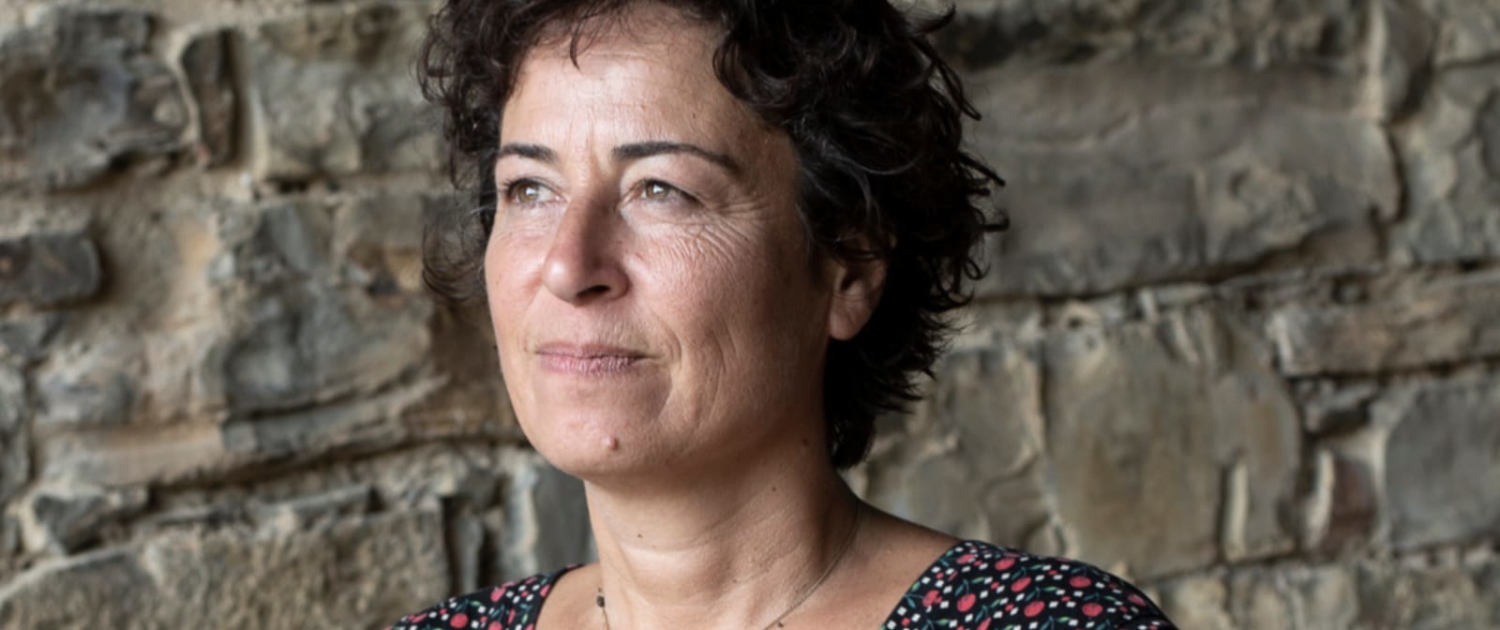
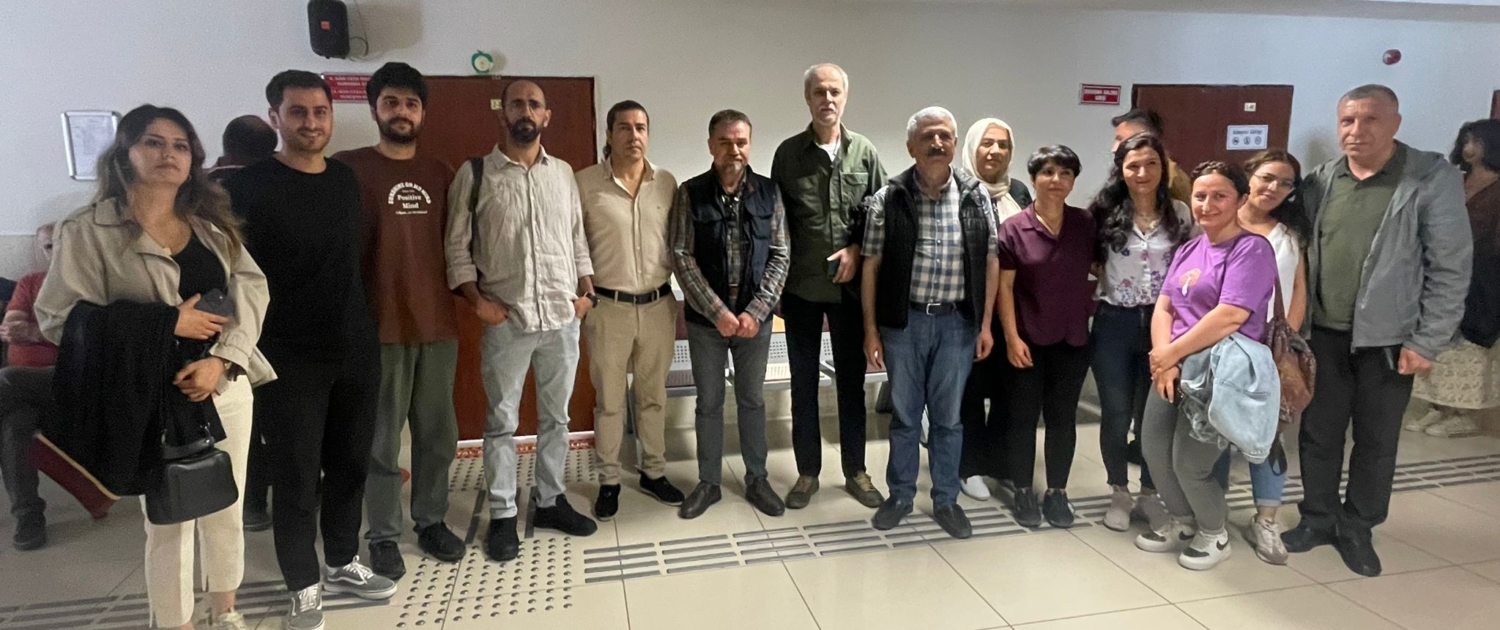
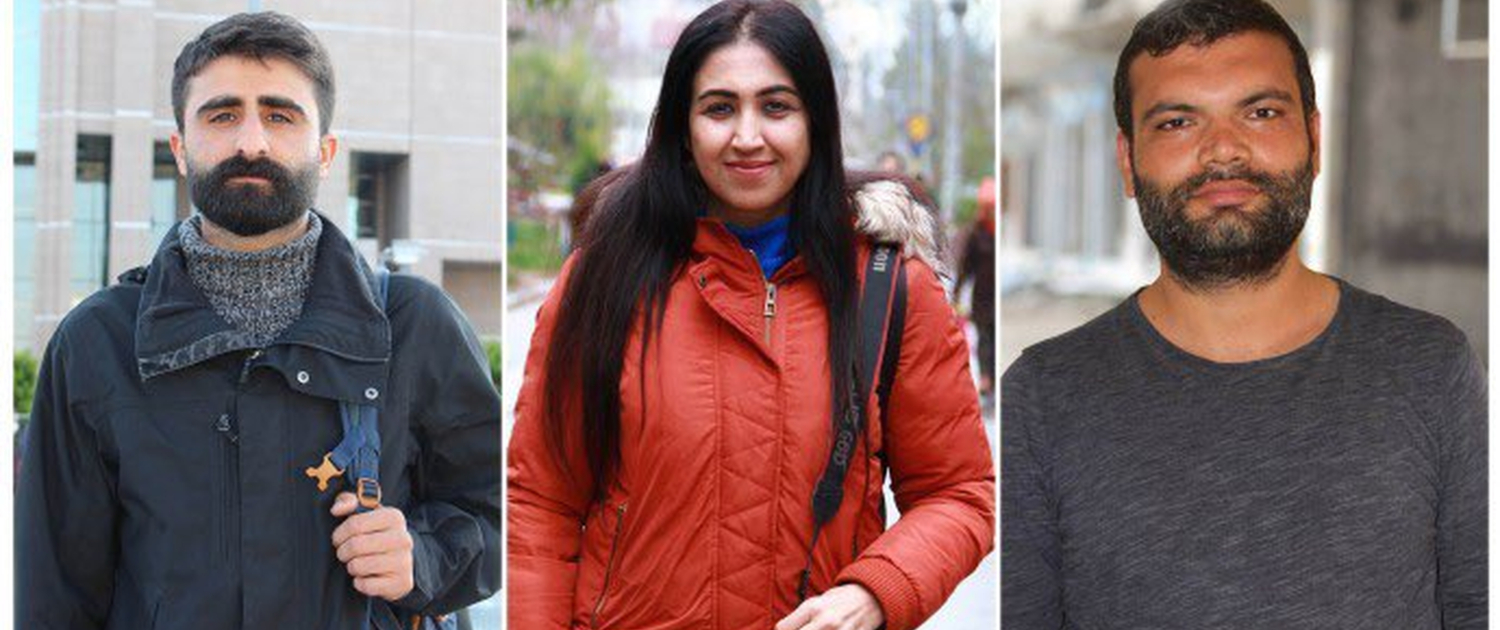
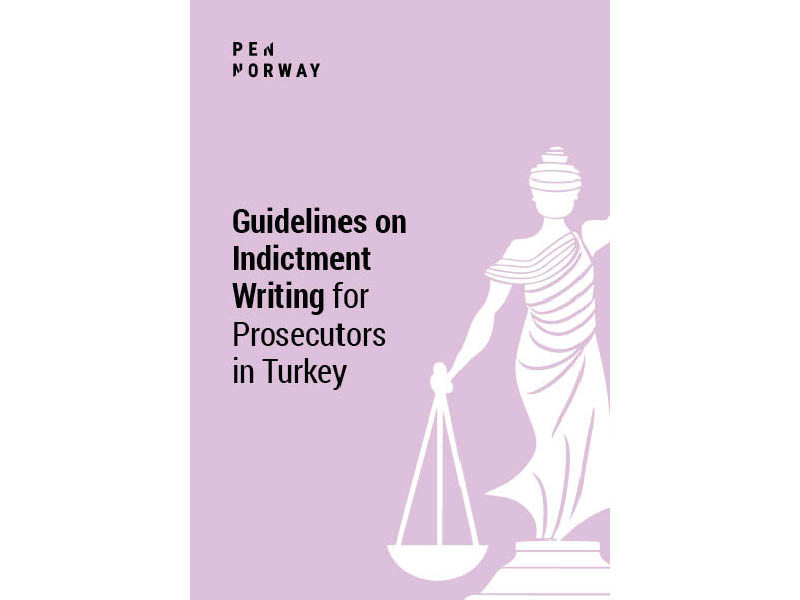
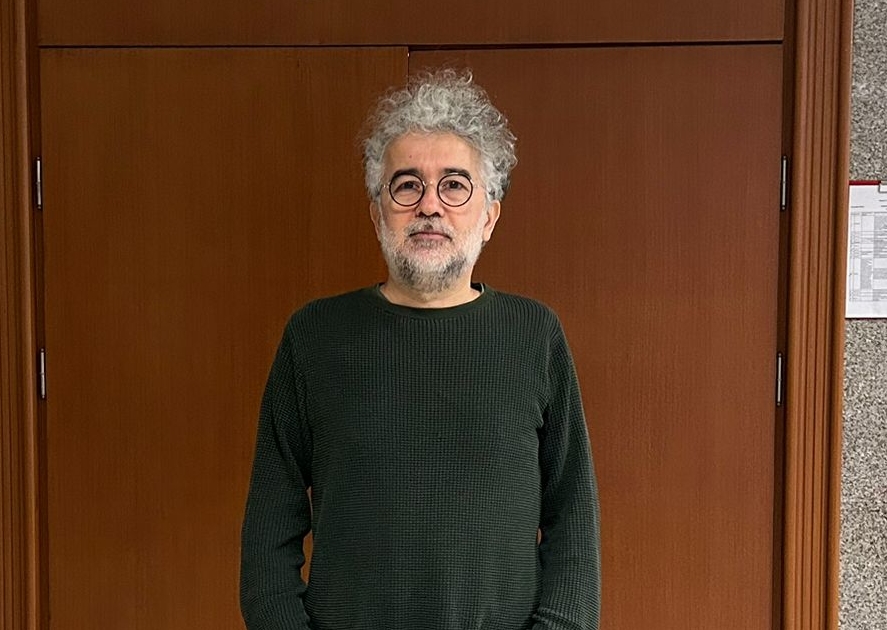
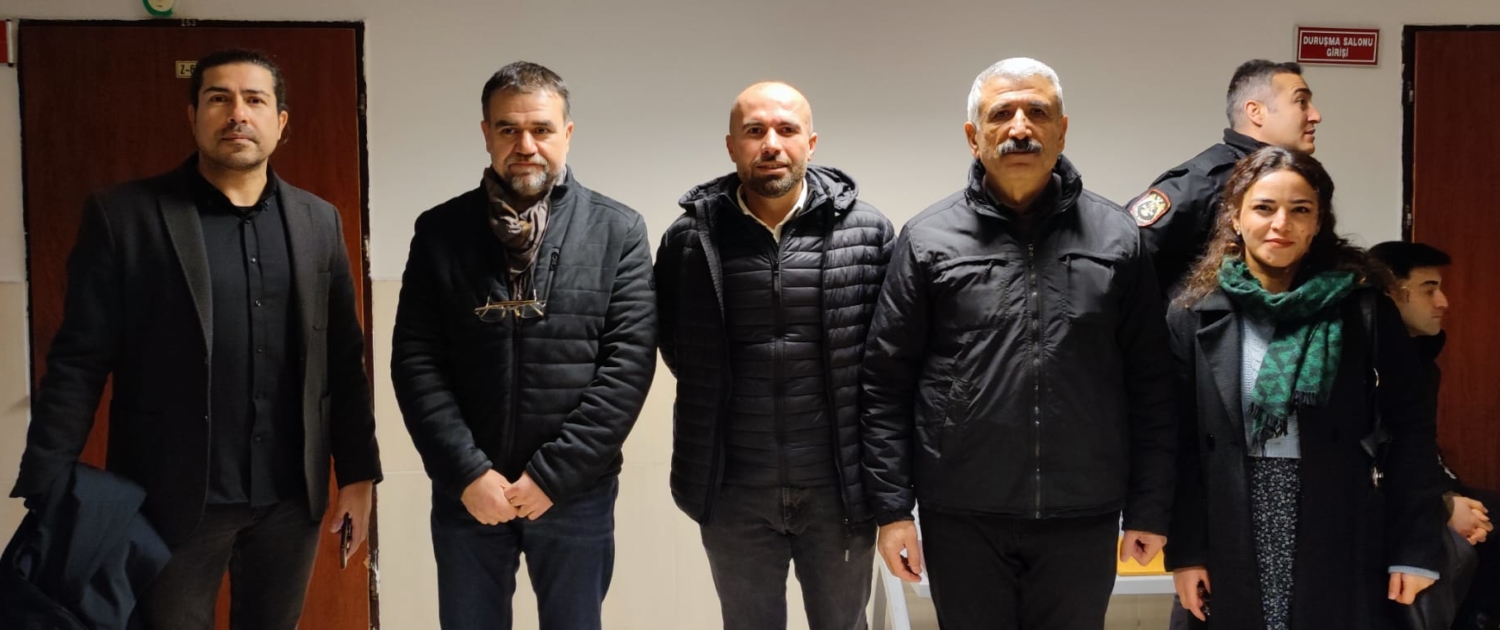 From left to right: Defendant journalists: Rohat Bulut, Serdar Altan, Lezgin Akdeniz, Mehmet Şahin, Elif Üngür. Photocredit: PEN Norway
From left to right: Defendant journalists: Rohat Bulut, Serdar Altan, Lezgin Akdeniz, Mehmet Şahin, Elif Üngür. Photocredit: PEN Norway
